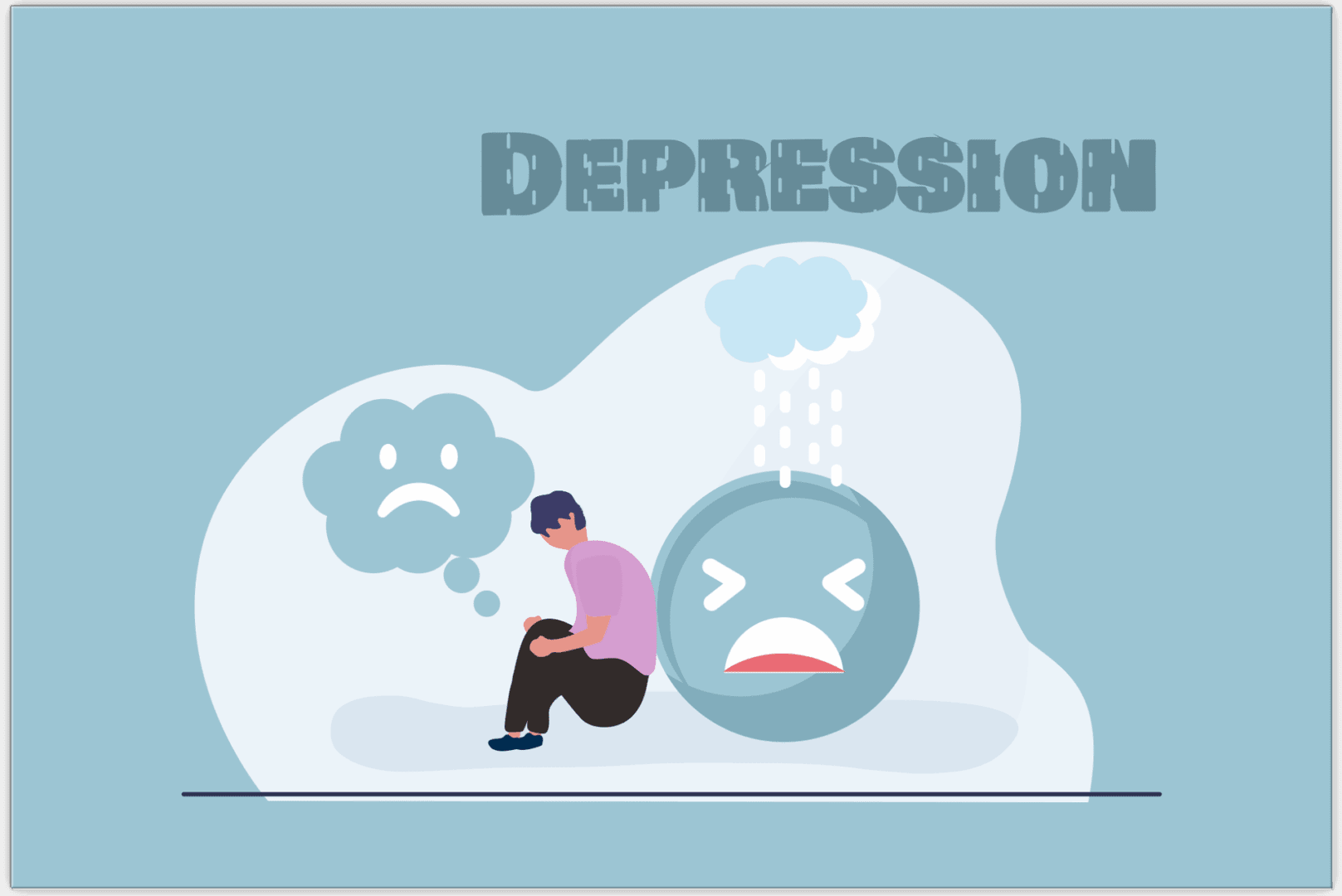Depression. It’s a word that carries so much weight, often whispered behind closed doors. But what does it really mean to live with depression? For many, sadness is just part of life – a temporary dip in mood after a difficult event. But for others, and I speak from experience here, it’s a relentless shadow, stealing the joy from everyday moments and colouring everything grey.
More Than Just Sadness
I’ve lived with anxiety for years, what doctors term ‘chronic anxiety’. It’s been a companion of sorts – sometimes manageable with medication, other times requiring more focused effort. Learning to manage that anxiety was a form of self-care, a proactive step towards wellbeing. But nothing could have prepared me for the darkness that descended earlier last year when my wife lost her battle with cancer.
When Anxiety Deepens into Depression – The Weight of Grief
Losing someone you love is devastating, and grief takes many forms. For me, it wasn’t just sadness; it was a profound shift in everything. My existing anxiety spiralled, deepening into full-blown depression. It felt like the colour drained from the world, leaving behind only shades of grey. The weight on my shoulders became almost unbearable.
I know now that grief can trigger depression, and it’s vital to acknowledge that connection. It’s not a sign of weakness; it’s a natural response to immense loss. But allowing yourself to be consumed by the darkness isn’t the answer either.
More Than Just Sadness – How Depression Showed Up For Me

Sometimes, it’s the small things that become impossible. Getting out of bed. Preparing a meal. Simple conversations felt exhausting. Food lost its appeal, sleep became a battleground, and those passions that used to ignite my soul… they just flickered and faded. It’s as if life itself has lost its colour. I found myself withdrawing from friends and family, isolating myself in my grief. It sounds dramatic, I know, but it’s the only way I can describe it.
The symptoms are incredibly diverse. Some people withdraw completely, losing interest in activities they once cherished. Others might experience constant physical changes: relentless fatigue, shifts in appetite (either eating too much or not at all), and even unexplained aches and pains. It can also impact intimacy; a lowered sex drive is common, and that can bring with it feelings of frustration, shame, and further isolation. It’s important to remember none of these feelings are your fault.
Building My Road Back – A Multifaceted Approach
The long road back has been difficult, but I’m slowly finding my way again. And what I’ve learned is that recovery isn’t about a single solution; it’s about building a holistic approach to wellbeing. Medication continues to be an important part of my journey, when needed, helping to stabilize my mood and manage the underlying anxiety. But medication alone wasn’t enough.
I actively focused on things I could control. I revisited healthy habits – prioritizing a nutritious diet, incorporating regular exercise (even just a daily walk), and practicing mindfulness techniques like meditation. These weren’t quick fixes, but consistent efforts that gradually started to lift the weight. Mindfulness, in particular, helped me stay grounded in the present moment, rather than being overwhelmed by past grief of “What If” or future anxieties.
Her Legacy – A Reason to Keep Going
But perhaps the most powerful force driving my recovery was a memory of a conversation with my wife. She wouldn’t have wanted me to succumb to despair. She would have urged me to find joy again, to live life fully, and to honour her memory by embracing every moment. That knowledge – that I was carrying her wishes within me – became a lifeline.
It reminded me that self-care isn’t selfish; it’s essential. It’s about respecting your own wellbeing and recognizing that you deserve happiness, even in the face of profound loss.
The Weight of Stigma & The Need for Openness
Perhaps the biggest battle isn’t just fighting the biological symptoms, but overcoming the social stigma surrounding mental health. For too long, people struggling with depression have been treated like outcasts, their pain minimized or dismissed with phrases like “just snap out of it.” This is incredibly damaging and prevents so many from seeking the help they desperately need.
Breaking Down Barriers & Building a Compassionate World
We need to change this thinking. We need to create a world where asking for help isn’t seen as weakness, but as an act of courage. A world where open conversations about mental health are normalized, and people feel safe enough to share their experiences without fear of judgment or ridicule. It’s okay not to be okay. It’s okay to ask for support.
Let’s work together – parents, friends, family members, individuals – to build a society that embraces compassion, understanding, and genuine connection. A society where everyone feels empowered to reach out when they need it most, knowing they won’t be met with silence or shame, but with empathy and support. And let’s remember those we’ve lost by living our lives as fully and joyfully as possible – a tribute to their memory and a beacon of hope for others.
Image by Mahathelge Ahmad Supriyanto from Pixabay